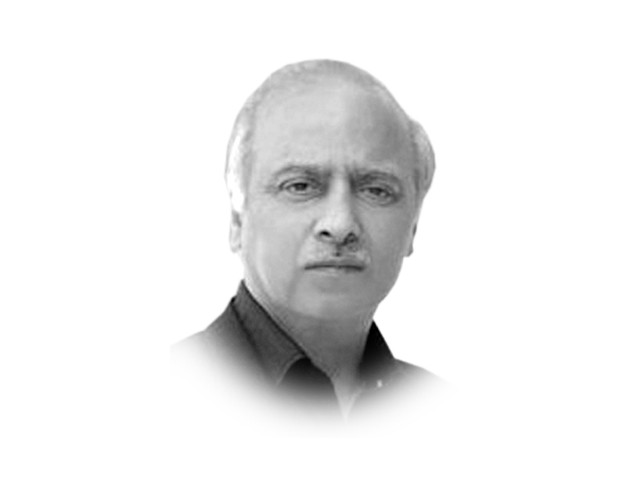Above the Constitution?
In Germany attorneys called for president’s trial. In Pakistan a barrister went back on his position, defends premier.

Back in 1986, when Uwe Barschel, the chief minister of Schleswig-Holstein, a German state, committed suicide after official records gave his claim of innocence a lie, he could not stand the public scrutiny anymore and took his own life in a Geneva Hotel, leaving behind five children.
Willy Brandt, the great German statesman, practically wrote his political nemesis, when he apparently appointed a young Greek-origin lady as the spokesperson of his Social Democratic Party in the late 1980s. The charge against him was that he made the appointment without consulting the party hierarchy. Here in Pakistan, charges of corruption, or allegations of abuse of authority carry no legal or moral value; political parties are run as personal fiefdoms, with brothers and sisters and scions claiming important spots in parliament and in the party. Here, even the facts such as the spurious graduation degrees of dozens of MPs matter little when it comes to morality or principles. Even revelations that a former minister does not hold a doctorate degree are hardly enough for such individuals to draw moral consequences. Or take the case of a political opportunist like Sheikh Rasheed who finds nothing wrong in rubbing shoulders with leaders of banned outfits. For all of them, the guiding principle revolves around political survival — regardless of its legal or moral cost.
Is the law and its respect confined only to those who empower a certain class of people to legislate for them? And does the parliamentary membership place MPs, and particularly the holders of top offices, above the Constitution? The prime-ministerial reaction to the Supreme Court rulings clearly suggests he considers himself answerable to that parliament and not a court of law, a parliament packed with a lot of people whose legal wisdom and intellect may be suspect if put to scrutiny. Essentially, everybody must be equal before the law. This is what the Supreme Court is trying to achieve and this is what we all must stand for; equality before the law of the land. Neither exemptions nor immunity for anybody, whosoever. No misconduct or violation of law must go unchallenged and unpunished.
Published in The Express Tribune, February 23rd, 2012.














COMMENTS
Comments are moderated and generally will be posted if they are on-topic and not abusive.
For more information, please see our Comments FAQ